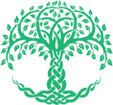Quick Search
Assessment of the Status of Urban Family Practice Program in Iran from the Perspective of Experts: A Qualitative Study
Sadegh Fattah Ahari, Raana Gholamzadeh NikjooDepartment of Health Policy and Health Services Management, School of Management and Medical Informatics, Iranian Center of Excellence in Health Management, Tabriz Health Services Management Research Center, Tabriz University of Medical Sciences, Tabriz, Iran.INTRODUCTION: This study aimed to assess the status of urban family practice program in Iran from the perspective of experts.
METHODS: This qualitative study with a phenomenological approach was conducted on July 20, 2021. Data were gathered using an interview guide (semi-structured interview), which outlined the urban family practice program in four dimensions program achievements, challenges, assessment indicators, and suggestions for program development.
RESULTS: A total of 19 participants were included in the study, and the mean age was 46.2±7.3 years. The participants reported the achievements of the urban family practice program in six areas of health indicators, financial protection, workforce, referral system, meeting the needs of the community, and universal health coverage. The challenges of this program were reported in five areas of financing, payment system, organization, rules and regulations, and behavior. Furthermore, the assessment indicators of the family practice program were in three sets of input, process, and output. Participants suggestions for improving the family practice program were divided into financing, payments, organization, rules and regulations, and behavior dimensions.
DISCUSSION AND CONCLUSION: Urban family practice program in the implemented cities has many strengths and weaknesses. Participants suggested several ways to enhance the family practice program, such as aggregation of health insurance, making general reforms in the financing, raising service tariffs (outside the referral system), equity in paying public and private sector employees, training the required workforce, attracting the cooperation of specialized physicians, and integrating family practice program protocols in physicians training packages.
Manuscript Language: English




















